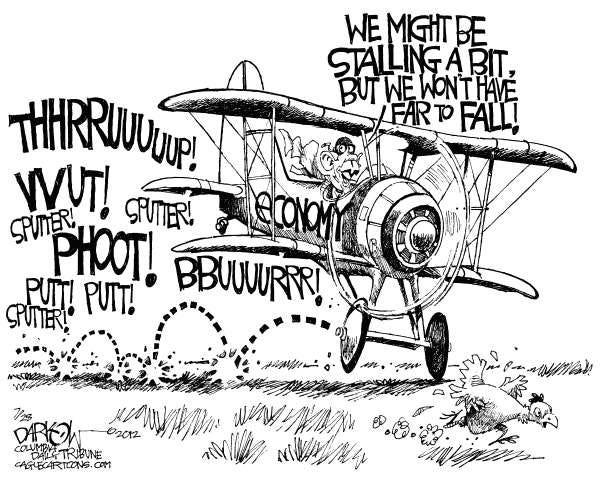What the Fed Doesn't Know...
...won't hurt it. But, in all likelihood, will hurt the rest of us. The Fed's failures stem from its inability to foresee the future and how its policies distort that future, being counter-productive to its objectives. From the WSJ:
Downgrading Growth Again
The Federal Reserve slashes its GDP forecast for 2014.
The Federal Reserve's Open Market Committee on Wednesday stuck to its path of reducing its bond purchases by $10 billion a month, which was no surprise. The news, by now so routine that perhaps it also shouldn't surprise, is that the Fed once again reduced its forecast for economic growth.
The Fed slashed its growth prediction to 2.2% for 2014, which is down sharply from the nearly 3% forecast that it made in March. That's almost a one-third decline in growth in a mere three months. The move reflects the minus-1% growth in the first quarter, which could turn out to be even worse with revisions. But the forecast also suggests the Fed's staff is warier about the widespread predictions that the economy will finally stage a breakout from the malaise that has characterized this recovery since it began in June 2009.
The Fed staff and governors may want to study what they've been getting wrong in these forecasts. Predicting future growth is notoriously hard, but this is the fifth consecutive year that the Fed has been too optimistic. The Fed operates largely from a Keynesian model that in our view gives undue growth credit to federal spending, which helps to explain the overestimates in the wake of President Obama's stimulus.
The Fed's models may also be overstating the impact of its monetary exertions, especially its bond purchases, and underestimating the negative impact on the allocation of capital from its near-zero interest rates. By distorting long bond prices in particular, the Fed has been helping the government finance its deficits, but that does nothing for growth or private animal spirits. Near-zero rates also give incentives for the misallocation of private investment, though how and where are hard to know until we see the payoff, or damage, down the road.
The payoff we know we aren't seeing is faster growth, with all of the attendant harm from less job creation, fewer new businesses, and flat incomes for Americans who don't own stocks or San Francisco town houses. The political class, including many conservatives, continues to be preoccupied with income redistribution rather than growth. Maybe the Fed should study the damage from that too.
[Blogger's note: economic inequality and growth are related issues.]



